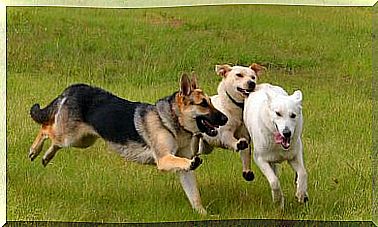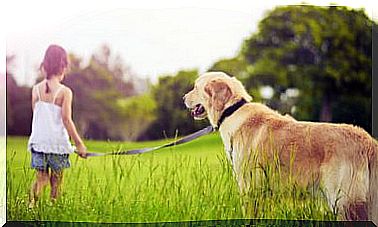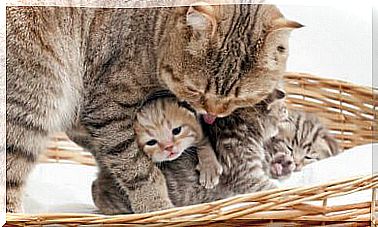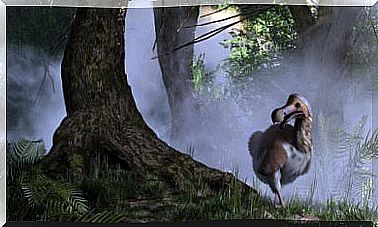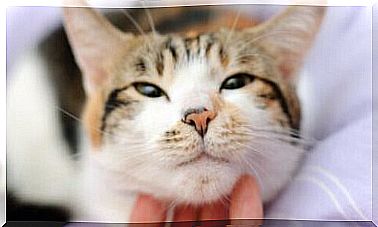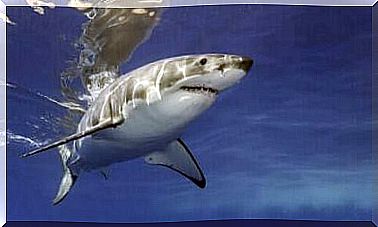Feeding A Bitch After Giving Birth
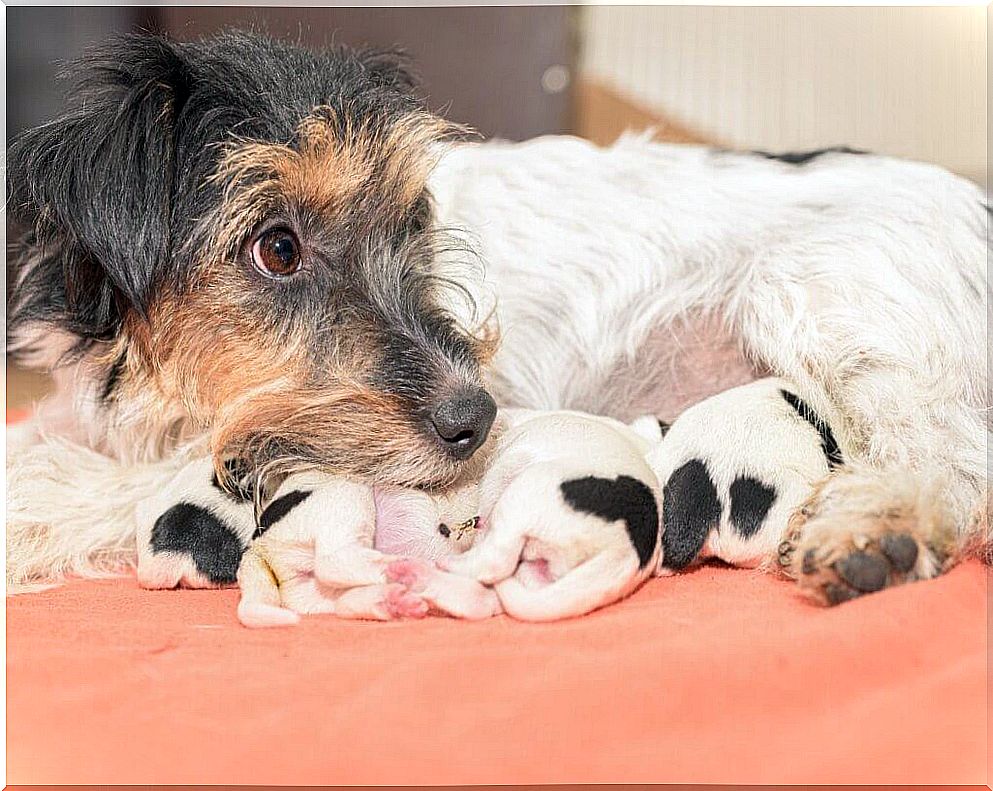
Pregnancy is one of the most delicate moments for all living beings. From complex animals such as elephants and dogs to insects, all animal species have a common mission in this life: to leave their genetic imprint in the form of offspring. Therefore, feeding a female dog after giving birth is essential to maintain her well-being and that of her puppies.
A diet rich in vitamins and macronutrients is vital for a mother and her offspring to survive after giving birth. Next, we’ll introduce you to what the menu of a canine mother who has just given birth should look like. Don’t miss it!
How to feed a lactating bitch?
Canine fetuses grow very quickly, so it is not surprising that the female dog gains 25% of her total weight a few weeks after copulation, as studies indicate. During the second half of childbirth, weight can increase by up to 50%, a value that is often confused with excess fat due to obesity or lack of exercise.
Anyway, it is important to highlight that many tutors sin in overfeeding the bitch, in order to help her during pregnancy. It should not be forgotten that the animal needs to exercise regularly, even if it is light exercise, and that the diet has to be balanced during this phase.
Food characteristics
To know how to distinguish between pathology and normality, the Association of American Feed Control Officials (AAFCO) has established a series of standardized guidelines regarding the diet of pregnant bitches. If you follow these rules with your pet, your weight gain will certainly be due to the growth of the puppies in the placental environment:
- 22% protein in the diet: Proteins represent up to 50% of the dry weight of tissues in living organisms. The intake of proteins by the mother is essential at this stage, as whole animals are being formed inside her.
- 8% dietary fat: despite their negative connotations, fats are essential for energy.
- 0.8% phosphorus and 1% calcium: calcium and phosphorus are necessary for bone synthesis and metabolic development in dogs.
- More than the remaining 50% must correspond to carbohydrates: carbohydrates are the main source of energy for mammals.
In addition, other professional sources recommend the dosage of vitamin supplements for the pregnant bitch. According to studies, the consumption of folic acid in adequate doses can prevent cranial anomalies in brachycephalic dog breeds, for example.
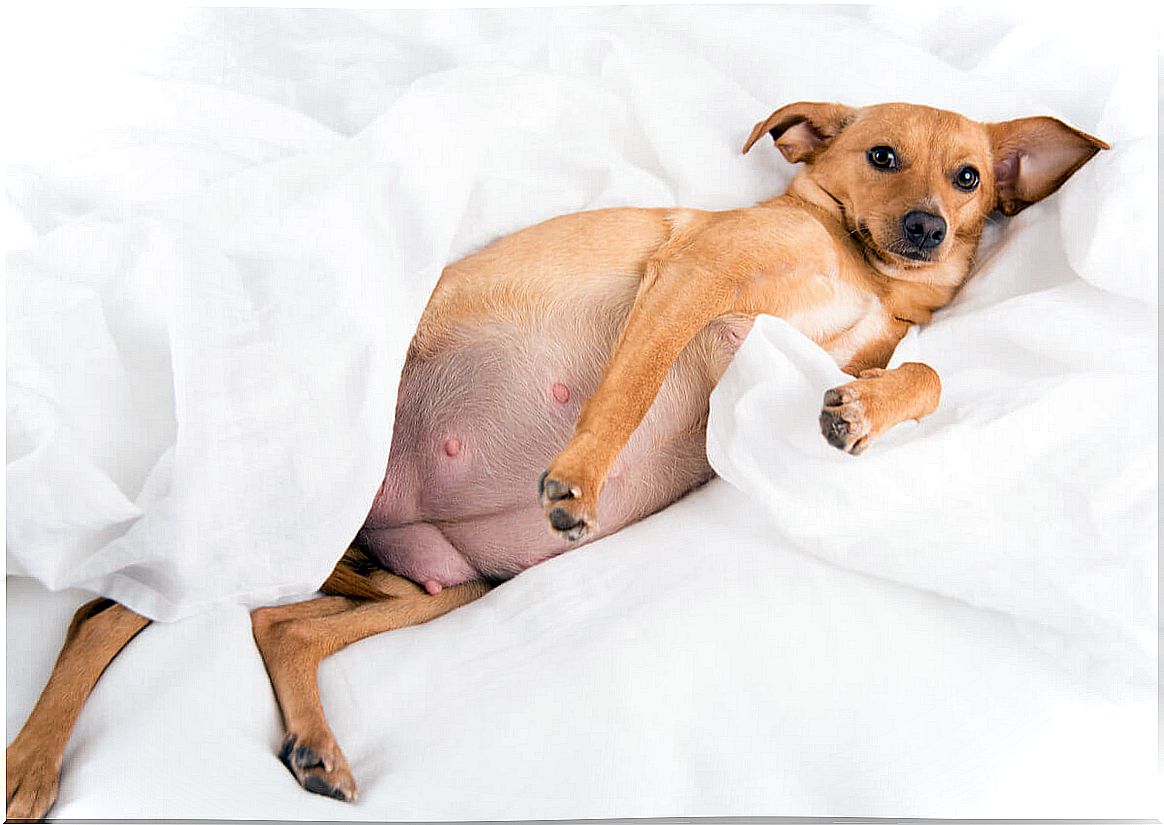
What should a dog feed after giving birth?
As indicated by the veterinary portal VCA Hospitals , the nutritional requirements of a bitch that has just given birth gradually increase, as she must now produce milk. The critical point occurs between 3 to 5 weeks after delivery, because at that time, the bitch needs 2 to 4 times more caloric intake than normal.
In order for a female dog to produce enough milk, she must have a large amount of food at her disposal. Until the fifth week after delivery, it is necessary to follow the following tips to the letter:
- Offer the mother a meal that is very rich in nutrients, be it special for the nursing period or for puppies, for example. Newborn dog food contains a lot of vitamins and minerals.
- It is better to increase food intake to 3 or 4 times a day rather than increasing the amount of food divided into 2 meals.
- The bitch should eat all the dry food she needs during the day.
From the 5th week, the puppies will start paying attention to the mother’s diet and will drink less and less milk. At this point, it is necessary to start reducing maternal caloric intake and encourage the offspring to start eating solid foods. About 8 weeks after giving birth, the dog’s diet can return to normal.
Food for the bitch to produce more milk
In principle, it is not necessary to provide the bitch with special foods in order for her to produce more milk. Nature is wise, and if any of the puppies are underweight, it is ideal to treat them individually, not through the mother’s diet.
Either way, any high-calorie food will be ideal for a nursing mother. Meat, eggs and moist foods will be great for her during this delicate time. Above all, don’t forget that there must be a water source available at all times.

It is necessary to minimize risks
Feeding a bitch after giving birth is fundamental for the well-being of the offspring, but don’t forget that the mother’s health is also at stake. It is normal that the bitch does not want to eat food within 24 hours after giving birth, but if the condition persists it is necessary to take her to the veterinarian urgently.
The mother may have a placental infection, breast infections, and other serious illnesses, such as a dead fetus remaining inside her body. In all these cases, veterinary treatment is the only option to save the animal’s life.

